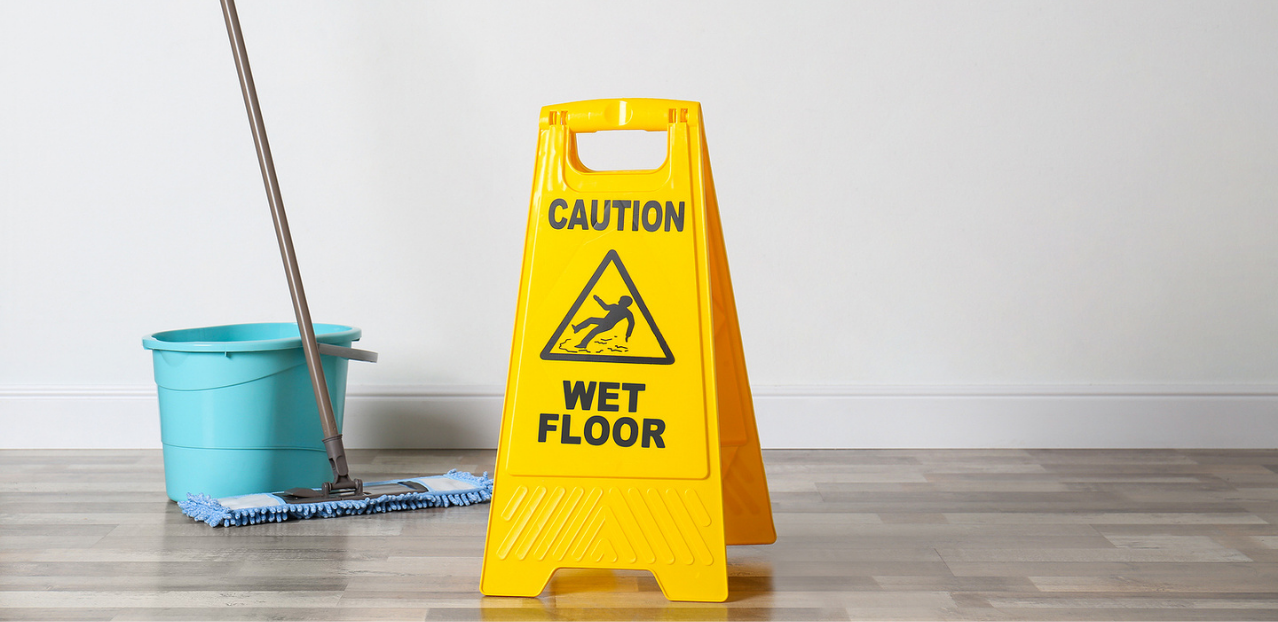General Liability

What happens when your client sues you? Their child has a severe allergic reaction to the cleaning agent used in their home. They slip on a wet floor and break their hip. They allege that your employee stole something from their home or business.
There are 2 unfortunate truths in the world of lawsuits:
- It doesn’t have to be true to end up in court
- Even the “nicest client” may sue you
Liability insurance coverage is lawsuit coverage. If your business is sued, the cost to defend you in court can be staggering. And if the lawsuit is not resolved in your favor, you could be required to pay damages to the person who sued you.
Damages are a sum of money, usually determined by the court, that you are obligated to pay. A liability insurance policy protects your business from financial losses caused by actual or alleged damages to another person, property or business. The policy pays the costs to legally defend you and if necessary, pays the damages to the injured party.
There is no single type of liability insurance that can respond to all types of lawsuits or accusations. Allegations of wrongdoing can arise from many different areas of your business. Different types of insurance have been developed to help protect individuals and businesses. A few types of liability insurance include:
- General Liability – responds to allegations of bodily injury, property damage, personal injury, or advertising injury
- Employment Practice Liability – responds to human resource related allegations such as dealing with unfair hiring or firing, discrimination, harassment, and wage-and-hour disputes
- Cyber Liability – responds to allegations that a 3rd party was harmed because your business experienced a data breach that caused their protected data (credit card information, health information etc.) to be compromised
- Auto Liability – responds to allegations of bodily injury or property damage resulting from the use of a vehicle
We are highlighting the types of liability coverage most needed by cleaning and restoration businesses. Additional information regarding other types of insurance and other types of businesses can be found at www.moodyinsurance.com.
When you start a cleaning business, General Liability insurance is often the first type of insurance coverage purchased. General Liability insurance responds to allegations of bodily injury and/or property damage. This includes situations such as:
- Damage to customer’s property in your care, custody or control. Damage to your client’s massive flat screen monitor that is technically in the care of your employees when they dusting it.
- Coverage for your workmanship (Products and Completed Operations). Remember that new floor cleaning product you told your employees to use? When permanently damages the tiles of the floor, you need coverage for your employee’s workmanship.
- Allegations of slander, libel or invasion of privacy (Personal Injury). You made a joke about a competitor at a trade show. You thought it was pretty funny. But they didn’t. In fact, they’re furious and are accusing you of slander.
- Bodily injury to someone else. When your employee finished waxing the office lobby, they forgot to put up the safety cones to warn people. A customer of your client slips and falls on the floor, breaking their wrist.
Your cleaning or restoration business needs the protection of General Liability insurance for multiple reasons. It starts with creating stability for your business as General Liability provides an economical method to access funds for defending and settling certain allegations or suits. You can budget a set amount in the form of an insurance policy, which then provides access to legal defense costs and judgement payments if needed.
Another reason you need General Liability coverage is so that you can grow your business. Contracts with clients, landlords, or even franchise agreements typically require you to have General Liability insurance in place. These other parties want protection in case an accident occurs that is your responsibility. If a lawsuit or allegation arises from the actions of you or your employees, they want to make sure you have appropriate insurance that will respond.
All parties should be responsible and carry coverage for activities within their own control. For example, if the Franchisor handles online advertising and makes a mistake in an advertising campaign, that is the responsibility of the Franchisor and would probably be covered by their policy. However, if your employee loses control of the floor scrubber and damages the wall, that’s your responsibility. Coverage follows responsibility. And since all parties bear some responsibility for different aspects of the business, all parties need to carry the appropriate insurance policies. Growth comes through partnership with others, and each party needs to be able to respond responsibly.
The accepted standard or limit of General Liability coverage within the professional cleaning and restoration industry is typically $1,000,000 of coverage. This is a general guideline. The amount of insurance you need may vary based on the scope of work or specifics of the contracts that you’ve entered. If you have a contract with a Franchisor, they will require certain limits for their Franchisees. Similarly, if you are leasing office space, the landlord will probably require that you carry a certain limit set for all tenants.
Be aware that sometimes contracting with larger clients or for jobs with a broader scope of work may require you to increase your General Liability limit. Also, when working in certain areas of the country, such as New York City and other large metro areas, the minimum required limits might be higher than the standard $1,000,000 limit. In cases such as these you may need to purchase a Commercial Umbrella policy or Excess General Liability policy to comply with the requirements.
There are several factors that affect the cost of your General Liability policy. All insurance policies are rated separately based on characteristics of the insured. And since no two companies are exactly alike, even within a Franchise, the insurance rates can vary. A few of the items that can affect your final cost include:
- Your annual payroll and/or annual revenue
- The state and county in which you primarily work
- Number of employees and subcontractors
- Type of cleaning that you perform – residential, commercial, janitorial, window washing, grout cleaning, etc.
- Years of experience
- Prior claim history and prior insurance history
The good news is that prices are not pulled out of thin air. Ask your insurance advisor how your General Liability premium was calculated. They should be able to explain the pricing based on your business characteristics. Keep in mind that the price you pay at the beginning may not be the final price. Many General Liability policies for cleaning and restoration companies are auditable policies.

What is an auditable policy?
When an insurance company agrees to insure your cleaning or restoration business, they need to have a general understanding of the size and scope of your business. You are better protected when the insurance company understands the full scope of your activities so that you can be insured correctly for all the various scenarios you undertake as a cleaning or restoration company.
Insurance companies are typically providing $1,000,000 of liability coverage (a significant sum). And, are often charging a few hundred or a few thousand dollars for this coverage. They want to make sure they have charged the appropriate amount to encompass the risk the associated with your specific business operations. In short, an insurance company wants to understand if you are a one-person business operating from your home vs. a business with 100 employees operating from 3 offices in multiple states. The size and scope of your business matters.
To that end, the insurance company relies heavily on your annual payroll to estimate the size of your business. At the beginning of a policy period you provide them with your estimated payroll for the year. They charge an insurance premium based on that payroll figure. At the end of the policy term, the insurance company will send you an audit form to complete or may schedule a physical audit. You will then provide them with your actual payroll for the year. If your actual payroll was higher than the original estimated figure, you will receive an invoice to pay additional premium. If your actual payroll was less than estimated, you will receive a refund typically in the form of a credit on your next year’s premium. A policy that is based on an estimate, and then audited for accuracy at the end of the policy term, is an auditable policy.
